×
Save 20% On Your Purchase!
Use code SAVE20 at checkout to save on your purchase today from my Herbal Shop!
×
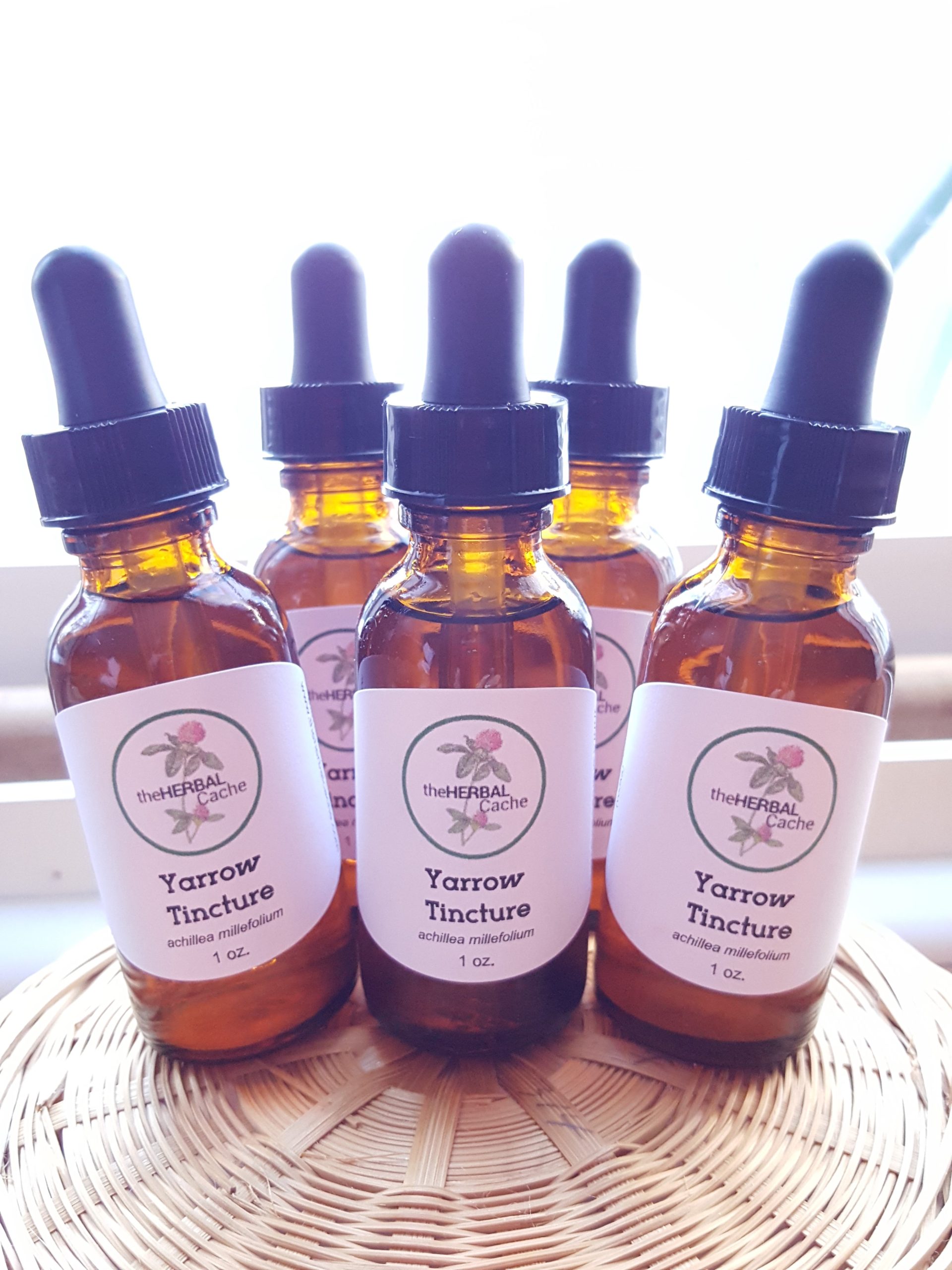
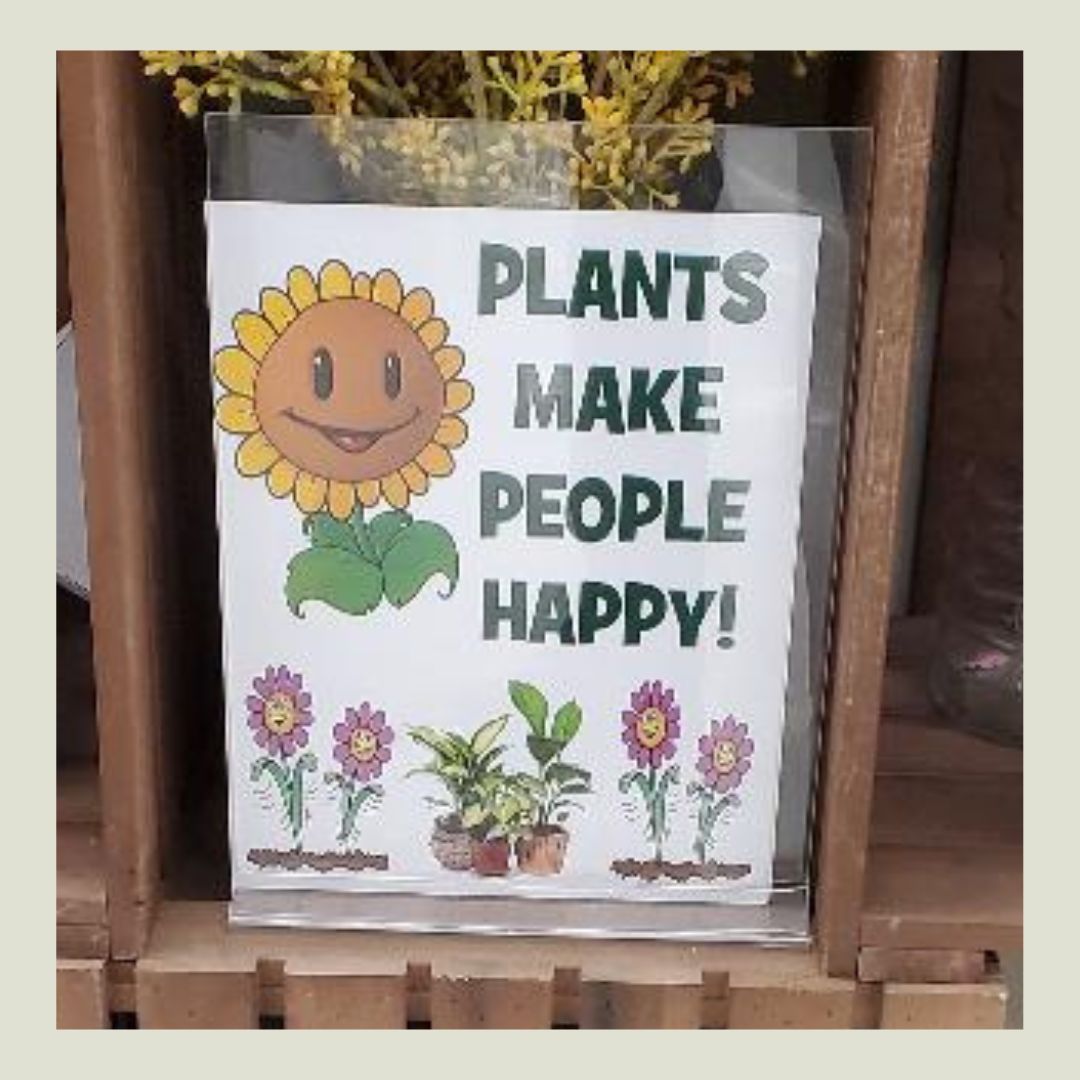
They sure do!
I was out and about one day and I came across this display at a grocery store. I passed it by, but it lingered in my head because plants do make me happy. I turned around, went back to the display and took this picture of it. I love the message “Plants make people happy!”.
We all know that giving and receiving plants, especially flowers, brings a certain joy and peace to our mindset.
That is why flowers are given on so many occassions:
“A beautiful plant is like having a friend around the house”
Why is it that plants bring us happiness?
Well, first off, we are surrounded by plants so we have to be able to live with them, like them and have a connection to them. If you don’t, you are in trouble.
This connection, or innate attraction to nature, is called biophilia. This term was coined by biologist E.O. Wilson. The desire to have house plants, trees along boulevards, a plant on an office desk, etc. stems from this natural desire.
And we can’t forget all the things that plants provide to us: shelter, food, medicine, oxygen and more. So why wouldn’t plants make us happy?
Let’s take a little bit deeper look at the many ways plants make us happy.
Studies have shown that being in and around nature makes us happier. One study has shown that nature walks are great for everyone and help to rejuvenate the brain. Another study by Gregory Bratman from Stanford, showed that those who took a 90 minute walk in nature, had decreased the pattern of thinking that is associated with depression.
To learn more nature walks, check out my blog post, “The Power of a Nature Walk“.
If you can’t get out in it, bring it inside. Natural aesthetic beauty is soothing to people, and keeping ornamental flowers and plants around the home is an excellent way to lower levels of stress and anxiety. People who keep flowers in their home feel happier, less stressed, and more relaxed.
At the end of this post, I share some ideas on what plants to have around your home or office.
About 50% of a group of survey respondents explained that gardening helped them feel calm. I know for me gardening is very calming. Hearing the birds, watching the butterflies and sitting among the plants, yeah I could sit out there all day.
Being surrounded by plants makes people happy. According to a study conducted in hospitals around San Francisco Bay Area, 79% of the patients who took part said they felt calm, 19% claimed to have felt a sense of optimism, and 25% became stronger from spending time around plants.
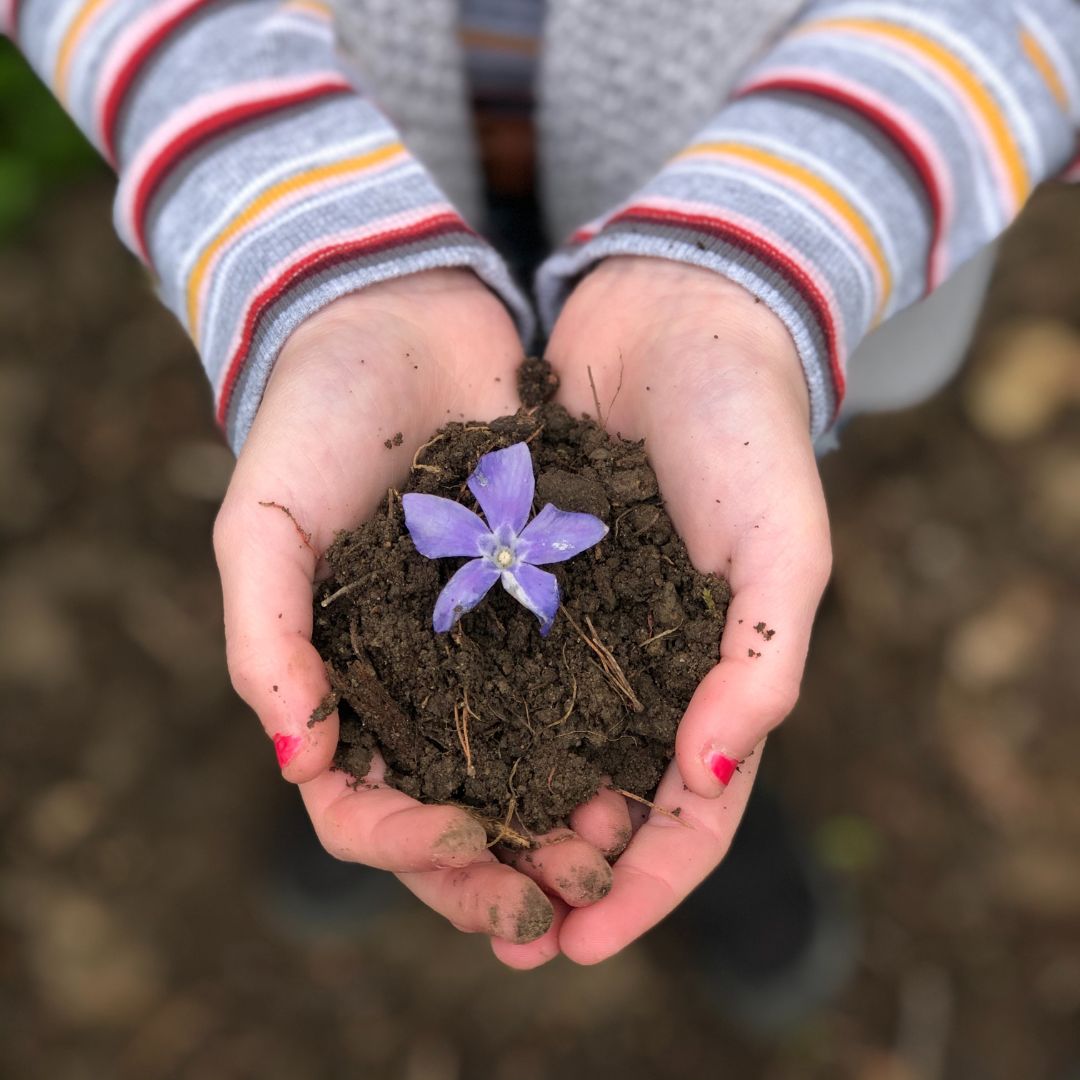
…the bacterium found in soil may help stimulate serotonin production, which makes you relaxed and happier. So getting your hands dirty in the soil when working with plants is beneficial two-fold.
When we are in the hospital or not feeling well, receiving flowers and plants automatically makes us feel better. Whether it is the plant itself or the thoughtfulness from others, receiving brings a sense of peace.
Not only do plants soothe and comfort us, but they have other health benefits as well:
Spending time in nature gives people an increased feeling of vitality, increasing their energy levels and making them feel more animated. Being out in a natural environments helps put a positive outlook on life, making people feel more alive and active.
Our minds need to be stimulated and one of the best ways is to bring the energy of outdoors, indoors with plants.
In a University of Michigan study, memory retention increased 20% while being around plants, positively effecting learning abilities. The effect of nature stimulates the senses and the mind which improves mental cognition and performance. Work performance is better, more accurate and of a higher quality when plants are around.
Studies have shown that surrounding yourself by plants could improve your concentration by up to 20% and increase your ability to recall information by 15-20%. Plants do this by reducing CO₂ concentration and improving air quality.
When I worked in an office setting years ago, I always had a plant on my desk. At the time, I wasn’t aware that it was helping me work better. Now I know.
The house plant pictured below kept me company for over 10 years in my office cubicle and now it hangs out in my stairwell. Still going stronge. Well, except for the war marks from being chewed on by my cat!
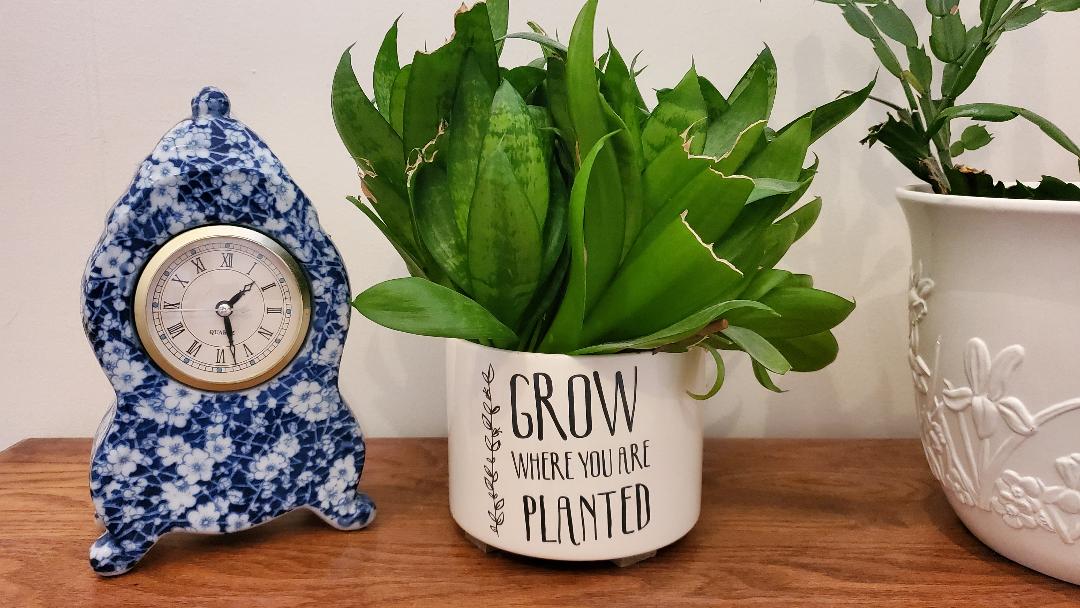
Having plants in your house can be a small but powerful concept that freshens up your space and brings life into your living quarters. Why do people have pets? Because they bring people joy and happiness! The same is true for plants. They provide you with something to care for and offer a change of scenery in your space.
Taking the time to care for a life giving object and putting in the effort to nurture a plant, brings happiness and a sense of calm to people. Not to mention the sense of achievement and the joy that arises when a new leaf pops out or a flower appears!
Studies have shown that people who spend more time around plants are much more likely to try and help others, and often have more advanced social relationships. Spread the love!
Studies have shown that muted green colors have a positive affect in our bodies. It has shorter wavelengths so our eyes don’t need to adjust to it. Also, because green is all over in the natural world, we feel centered and relaxed when surrounded by it. That in turn lowers anxiety. It also makes us feel optimistic and refreshed.
A few years ago I wrote a blog post about the color green, “It’s Not Easy Being Green, or is It?“. Give it a read, it includes a recipe for green bread, which I love!
There are select plants that will bring more happiness to us than others. But that should be taken individually.
For instance, there are thousands of flowers, but none can beat the happiness that a single red rose can offer.
On the other hand, a small child will pick a dandelion and say “Look Mommy! I picked you a flower!” and be so proud of his beautiful find. It’s all perspective.
If you are looking to adopt a plant and wondering where to start or just curious if your current plants are on the list, here are a few to look into.
There is no question about it. Whether its a rose or a dandelion, a flower had a positive effect on us.
I hope this blog post will entice you to get a house plant or two, or plant a flower outside or just take a walk in the woods.

Biophilia – What is it and why is it important?
The history of funeral flowers
5 Reasons Indoor Plants Make You Happier
World Happiness Day: four ways plants help us feel happier
Why Do Plants Make Us Happier? Five Facinating Reasons
Adding a Small Plant to Your Desk Can Improve Your Memory and Make You Happier

“An anthology is like all the plums and orange peel picked out a cake.” Walter Raleigh
Eat orange peels?
Now most of us will drink orange juice or eat the inside slices of an orange. But the peel? Too bitter!
But before tossing that orange peel into the garbage, continue reading and be amazed!
The peel has so much to offer us in terms of medicinal properties and keeping us healthy. It has been used for thousands of years to treat different ailments.
Orange peel contains a large amount of Vitamin C and is a powerful antioxidant.
So lets learn a bit about how orange peel is good for us, make a cup of orange peel coffee, look at ways to get orange peel into your diet, and lastly, check out other ways to use up those orange peels.
In Need of Organic Orange Peels?
You can save the peels from organic oranges you purchased and dry them yourself. Easy peasy.
Or you can purchase them from Mountain Rose Herbs, who stand for organics, fair trade, sustainability and more.
Orange peel, along with other citrus fruits, have been used for thousands of years as medicine.
It contains flavanoids, Vitamins A, C, B5 and B6, calcium, riboflavin, thiamine, niacin, folate and dietary fiber.
Lets look at the 21 ways orange peel has been used over the years to help with overall health and how you can benefit.
1. Diarrhea
2. Indigestion
3. Constipation
4. Cleansing
In Traditional Chinese Medicine (TCM), the orange peel has been used for hundreds of years to help with gas, bloating and other digestive issues.
The orange peel contains pectin, which is a beneficial carbohydrate that the good bacteria in your gut feed off of.
5. Colds
6. Coughs
Because of its antibacterial, antifungal and antiviral properties, orange peel is a great for warding off cough and colds. It helps in getting excess phlegm out of the lungs.
7. Weight Loss
8. Obesity
9. Athletic Performance
A team of scientists in Taiwan researced the effects of four different orange peel varities, and found that they remarkably reduced the production and accumulation of triglycerides in fat cells.
10. Cholesterol
When taking in large amounts of orange and orange peel, the HDL increases, while the LDL decreases, which is great for those with high cholesterol.
11. High Blood Pressure
The potassium in orange peel plays a huge role in lowering the risk of high blood pressure.
12. Anxiety
13. Stress
14. Hypertension
15. Depression
Studies are now showing that by just inhaling the aroma of orange and orange peel, can have an uplifting effect on people.
16. Arthritis
17. Rheumatism
Orange peel contains powerful anti-inflammatory agents that help with swelling, redness and inflammation.
18. Asthma
19. Oral Health
20. Hangovers
21. Poor Circulation
So how can you get more orange peel into your diet? Let’s start with a cup of Orange Peel Coffee and then look at more ways to use those peels.
This coffee recipe is not only easy to make, but so good to drink!
Coffee has always been associated with caffeine and a morning pick-me-up. This cup of freshness is much more.
Smelling the citrus aroma while the orange peel is steeping in the hot coffee is just up-lifting.
Are you ready for some?
Here is the recipe for Orange Peel Coffee. I’ve taken it from HERE and adapted it to my tastings. That’s what makes this recipe so wonderful! You can adjust it to your likings.
Orange Peel Coffee
Ingredients:
Directions:
Enjoy my fun little video below on making Orange Peel Coffee!
Besides eating orange peel, there are a number of other uses for orange peel, so don’t throw it out! Unless it’s into the compost pile.
Here is a list of uses:
https://www.motherearthliving.com/cooking-methods/citrus-peel-medicine-coffee
https://www.webmd.com/vitamins/ai/ingredientmono-908/sweet-orange
https://www.motherearthliving.com/health-and-wellness/citrus-peel-medicine
https://www.linkedin.com/pulse/25-proven-health-benefits-orange-peel-tea-dr-paul-haider/
Motherwort may be just a weed to most, but it has many uses and benefits. Hidden among the other green plants, it thrives and flourishes. If you just look for it, you will find it. If you don’t see it, you’re not looking hard enough, as it can get to ten feet tall in places!
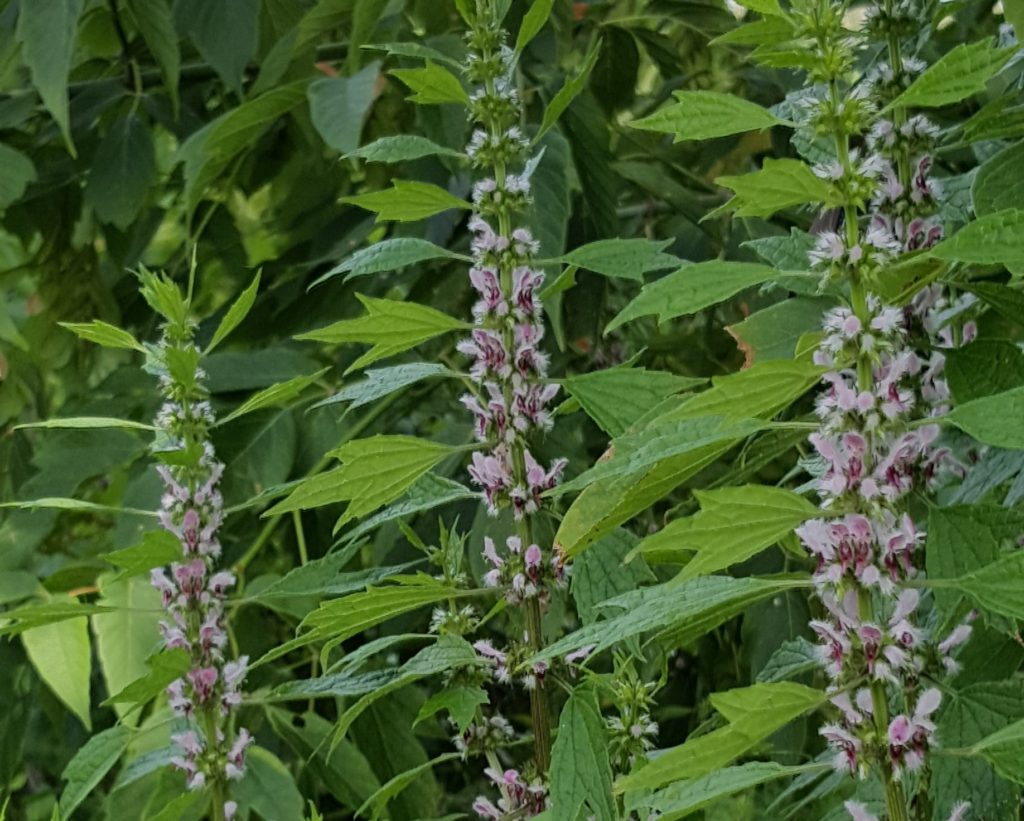
It’s botanical name is Leonurus cardiaca, says a lot right there. Leonurus meaning lion-hearted or of the lion. Motherwort is a strong and robust plant, thriving in most conditions. This most likely occurs, because it is in the mint family, making it hardy and easy to grow.
Cardiaca, of the heart, shows that motherwort has a large affinity for the cardiovascular system and has been used for centuries for that purpose.
The common name, motherwort, also has meaning. With wort meaning “herb”, we get “Mother’s Herb”. This makes it a wonderful remedy for those mothers with anxiety or high stress, and for those who may be worries about their own mother.
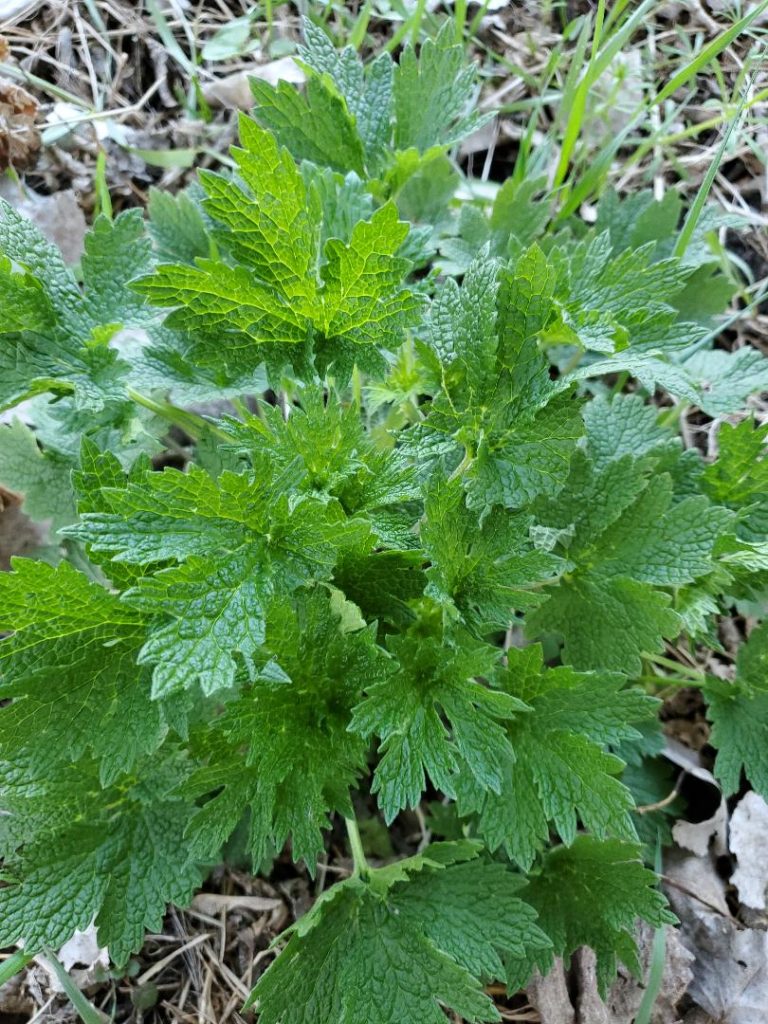
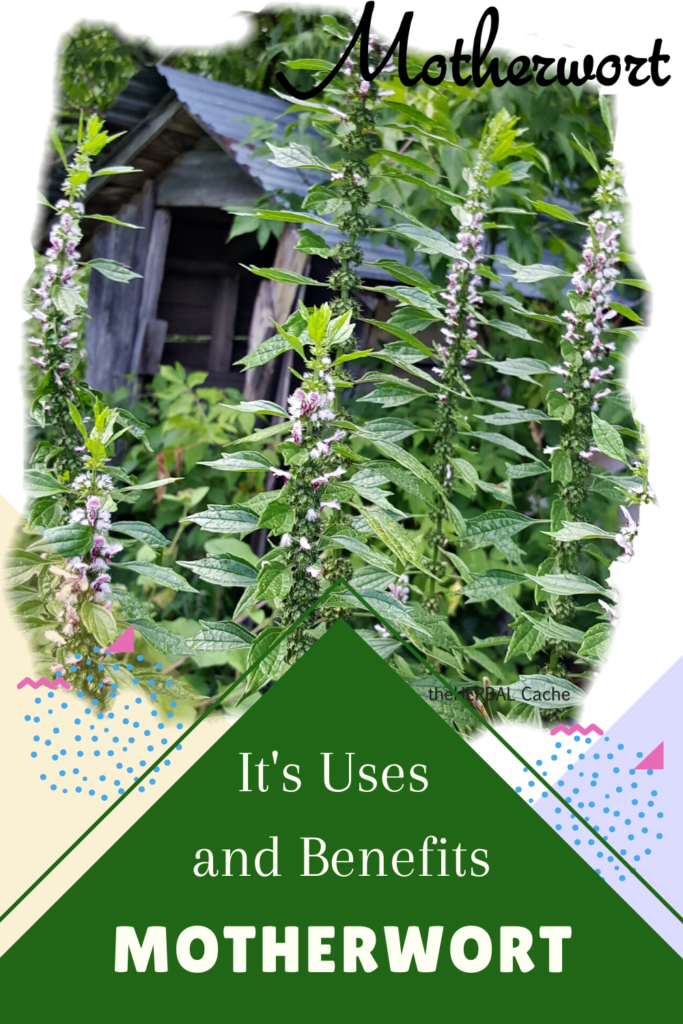
Motherwort is loaded with many vitamins and minerals, the reason it can help and support our bodies in so many ways.
Motherwort is wonderful for the heart and cardiovascular system. It seems to work even better when paired with a tincture of hawthorn. It may even help those with high blood pressure and heart palpitations.
It is also quite useful for all heart conditions associated with anxiety and tension.
On the emotional side, motherwort may even help with heartache. Use in conjunction with linden or lemon balm to help lift one’s mood and spirits.
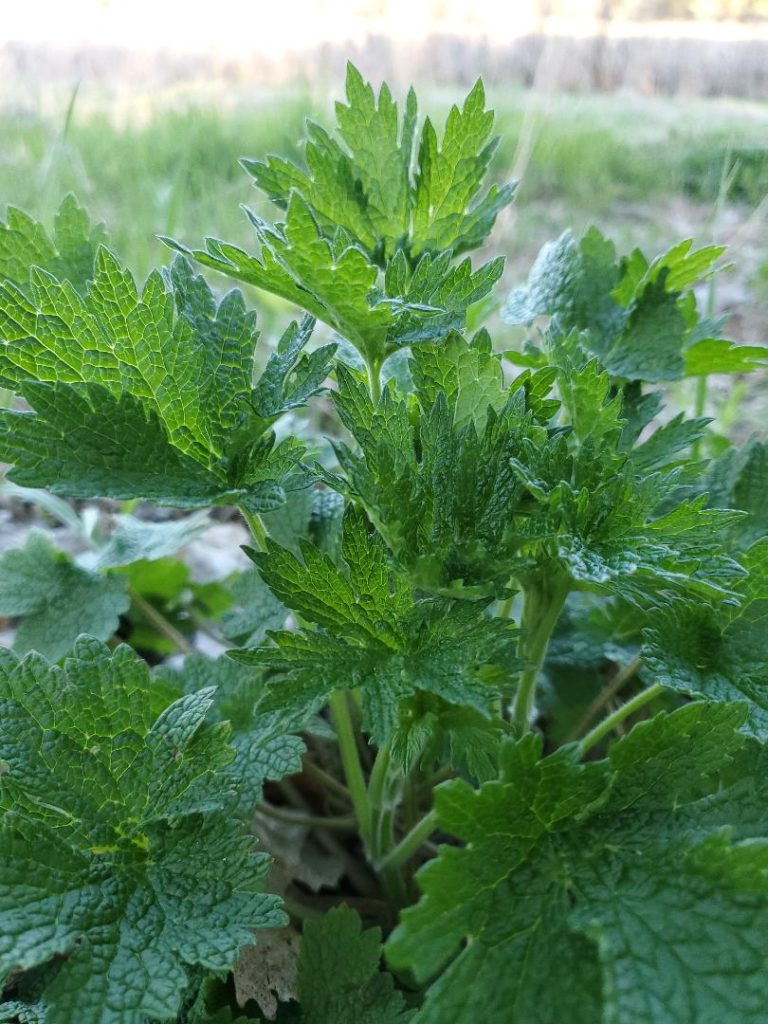
This herb is also good for the nervous system in helping calm and relax, especially in stressful situations. Motherwort seems to help alleviate tension and irritability.
There is no better Herb to drive Melancholly Vapors from the Heart, to strengthen it, and make a merry cheerful blith soul.
Nicholas Culpeper, The English Physician – 1652
Culpepper also classified motherwort among the “loosening medicines,” i.e. those “having a relaxant effect on muscles, tendons, ligaments, and membranes…”
From the name, we know that motherwort is also the herb for women. It helps with PMS, fertility, painful menstruation, hot flashes, lack of menses and delayed menstruation. By toning the uterus, it helps to prevent cramping.
**Do not use during pregnancy!
Motherwort also helps those in pain from MS, chronic fatigue, fibromyalgia and other nerve conditions.
It may also help with intermittent fever diseases such as typhoid, and respiratory ailments, such as bronchitis, asthma, coughing and wheezing.
This herb also supports the kidneys, digestion and helps with night sweats.
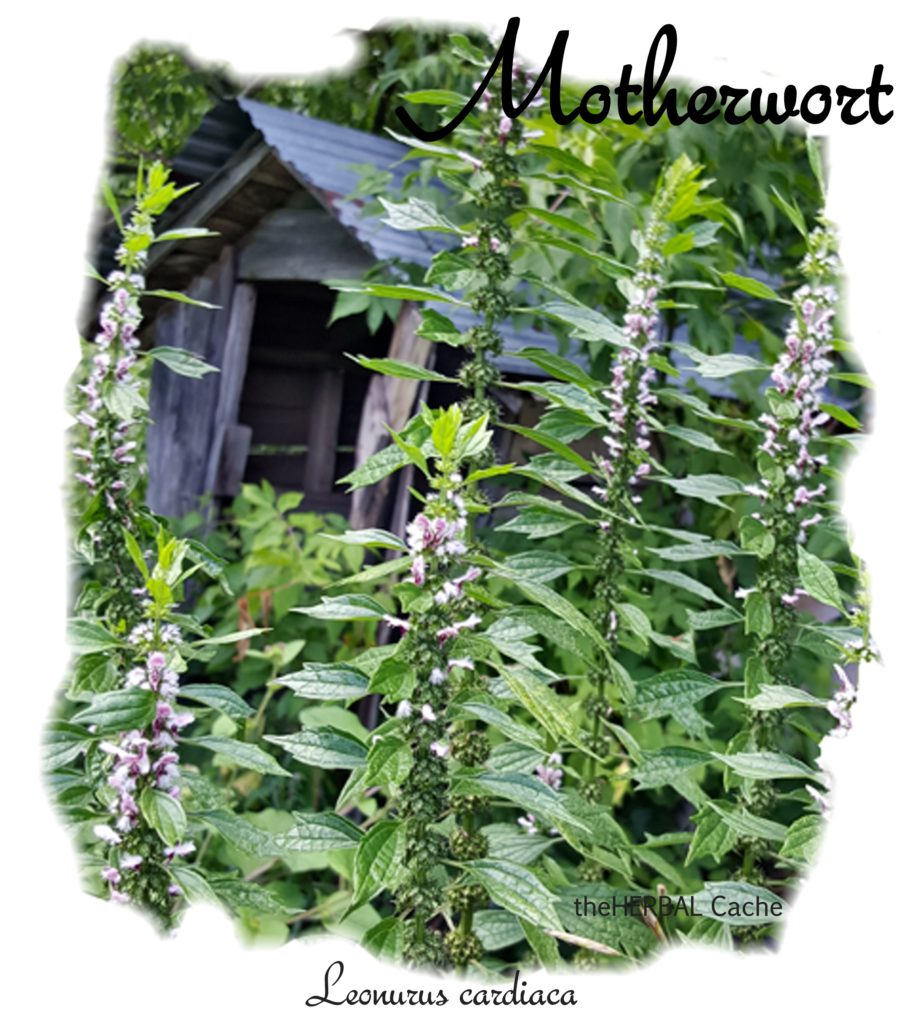
Robert Whelan says “I have come to develop a great deal of respect for how much Motherwort can shift a stuck pattern of tension in the heart or in the smooth tissue of the womb. I think that if it is used wisely for the right person it can be a profoundly relaxing and healing herb.”
“Statements herein have not been evaluated by the Food and Drug Administration, and are not intended to treat or diagnose any disease or health condition. It is also recommended that patients check with their doctors before taking herbs, to ensure that there are no contraindications with prescription medications.”
https://www.herbalremediesadvice.org/benefits-of-motherwort.html
https://rowanandsage.com/blog/2018/21/9/plant-profile-motherwort
https://www.wildnesswithinliving.com/blog/2016/7/22/motherwort
http://www.susunweed.com/herbal_ezine/July08/wisewoman.htm
http://www.susunweed.com/Article_Motherwort.htm
https://www.rebeccasherbs.com/pages/herb-article-br-motherwort
eclecticschoolofherbalmedicine.com/motherwort/